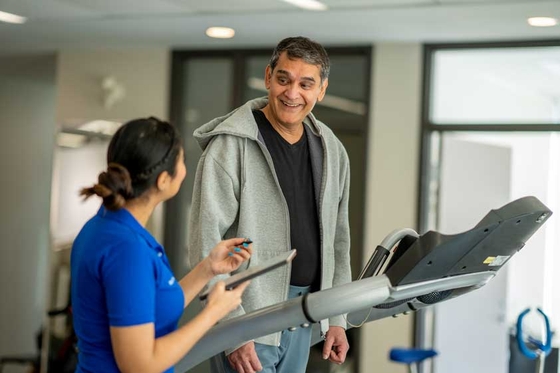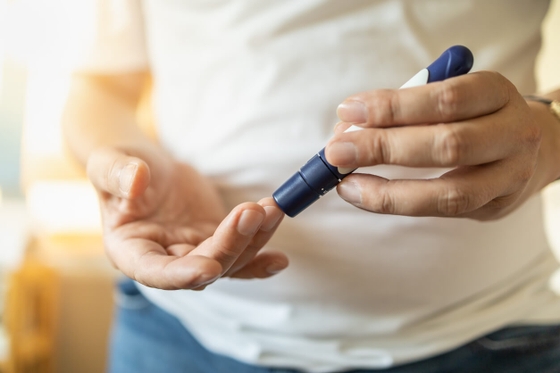
Chris’s heart attack and lifestyle change
Angiogram and blood test revealed major risks
Chris Harrison’s lifestyle included drinking alcohol, smoking cigarettes and “a poor diet”. He also had a history of heart disease on both sides of the family, with his father losing his life at just 38.
Add to that a diagnosis of type-2 diabetes two years before his heart attack in 2020.
“I’d had a routine angiogram in the days prior and was waiting for the results,” he said.
As fate would have it, Chris’ doctor called to give him the results from his angiogram. Asking Chris how he was feeling, Chris mentioned he had a headache, chest pains and a long list of other symptoms. The doctor became alarmed and urged him to go straight to hospital.
Chris blacked out as he was being assessed by hospital staff. A blood test that checks for raised cardiac enzymes indicated he’d had a “major coronary event”.
Undergoing quadruple bypass surgery
Surgeons performed a quadruple bypass, with Chris spending 18 days in hospital and nine weeks recovering at home. But, as anyone who’s experienced a major heart event will tell you, that was just the beginning.
A fresh start: choosing a healthier lifestyle after heart attack
“I’ve done a lot of soul searching since then. They told me I was dead for a short time. Afterwards, I felt like a baby again, living in a world where I didn’t trust myself physically,” he said.

It was like a handbrake slowing me down. It didn’t stop me completely, so it didn’t kill me. It just gave me a chance to pause.
Chris Harrison
Cardiac arrest survivor
Chris has ditched a lot of bad habits since the operation, quitting smoking and drinking, along with managing his weight and following a healthy eating plan.
“I’m seeing a personal trainer twice a week. These are all very different lifestyle choices. I feel a lot more in control of my life with decisions I’m making,” he said.
Hear more on the Stories from the Heart podcast
Chris shares his powerful story of overcoming heart disease and the lifestyle changes that made all the difference on the Stories from the Heart podcast.
You might also be interested...

Know your risk: Family history and heart disease
When you have a family history of a disease, this means a member of your family has, or had that disease.

Lifestyle management
Lifestyle advice and referral programs to help reduce CVD risk. Physical activity and a heart-healthy diet can help manage CVD risk factors such as high blood pressure, high blood cholesterol, obesity and diabetes.

Diabetes and heart disease
Diabetes is an ongoing health condition where your body’s usual ways of controlling your blood sugar, or blood glucose levels, don’t work properly. When your body breaks down food, your blood sugar level rises. The cells in your body absorb this sugar into your bloodstream using a hormone called insulin, and use it for energy.